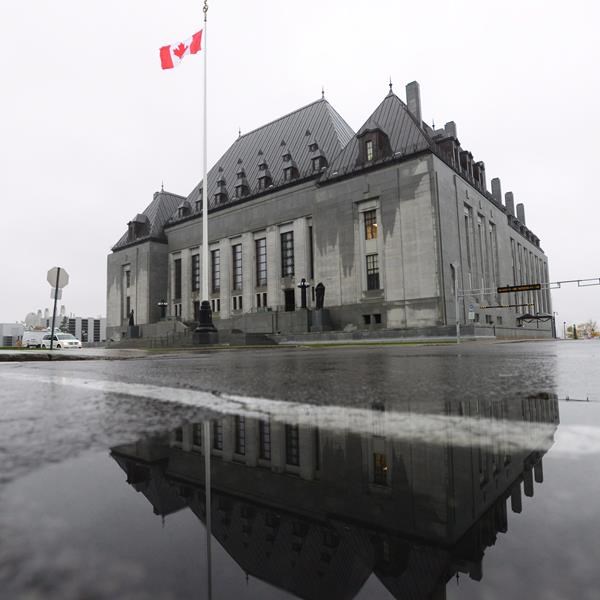OTTAWA — A not-for-profit organization has standing to challenge mental-health law in a British Columbia court, even though no individuals are plaintiffs in the case, the Supreme Court of Canada has ruled.
The court’s unanimous decision Thursday came six years after the Council of Canadians with Disabilities contested the constitutionality of mental-health legislation in B.C. that allows non-consensual psychiatric care.
Two individual co-plaintiffs discontinued their claims, but the council hoped to proceed in court without them.
The council promotes the equality, autonomy and rights of people living with physical and mental disabilities in Canada, pursuing these goals through advocacy, policy development, and advancement of rights — sometimes by way of litigation.
A judge ruled the action should be dismissed on the basis that the council lacked public interest standing to pursue the challenge on its own.
However, the B.C. Court of Appeal found the council’s claim was a comprehensive challenge to specific legislation that directly affects all members of an identifiable group in a serious, specific and broadly based manner, regardless of individual experiences.
The Appeal Court ruled there should be a fresh hearing in the B.C. Supreme Court on the question of public interest standing, which prompted the provincial attorney general to appeal to the Supreme Court of Canada.
In its decision, the country’s top court said public interest standing allows individuals or organizations to bring cases before the courts even though they are not directly involved in the matter and even though their own rights are not infringed.
It can therefore play a pivotal role in litigation concerning the Charter of Rights and Freedoms, where issues may have a broad effect on society as a whole, Chief Justice Richard Wagner wrote on behalf of the court.
In deciding whether to grant public interest standing, a court must look at whether the case raises a serious issue, whether the party bringing the action has a genuine interest in the matter, and whether the proposed suit is a reasonable and effective way of proceeding.
A court must also be mindful of allocating scarce judicial resources and screening out busybody litigants, ensuring the courts have the benefit of contending points of view of those most directly affected by the issues, the Supreme Court said.
A directly affected plaintiff is not vital to establish a concrete and well-developed factual setting for a case, Wagner wrote.
Public interest litigants can establish such a setting by calling affected, or otherwise knowledgeable, non-plaintiff witnesses, he said. “If a directly affected co-plaintiff is not required, then would-be public interest litigants should not have to justify — or compensate for — the absence of one.”
The council’s pleadings are well drafted and raise a serious issue: the constitutionality of laws that implicate — and allegedly violate — the Charter rights of people with mental disabilities, he added.
The council’s claim undoubtedly raises issues of public importance that transcend its immediate interests, Wagner said.
“The litigation has the potential of affecting a large group of people, namely people with mental disabilities. Moreover, granting public interest standing in this case will promote access to justice for a disadvantaged group who has historically faced serious barriers to bringing such litigation before the courts.”
Further, the pleadings reveal that the case does not turn on individual facts, Wagner said.
“Much of the case can be argued on the basis that the legislation is unconstitutional on its face because it authorizes, under certain circumstances, forced psychiatric treatment without the consent of the patient or of a substitute decision-maker,” he wrote.
“Expert evidence regarding how health care providers treat involuntary patients and evidence with respect to particular patients may provide helpful insight into how the legislation is applied.”
Lawyer Michael Feder, who argued the case on behalf of the council, said the ruling “has broad importance for access to justice and for ensuring discriminatory and other unconstitutional laws can be challenged in court.”
This report by The Canadian Press was first published June 23, 2022.
Jim Bronskill, The Canadian Press
